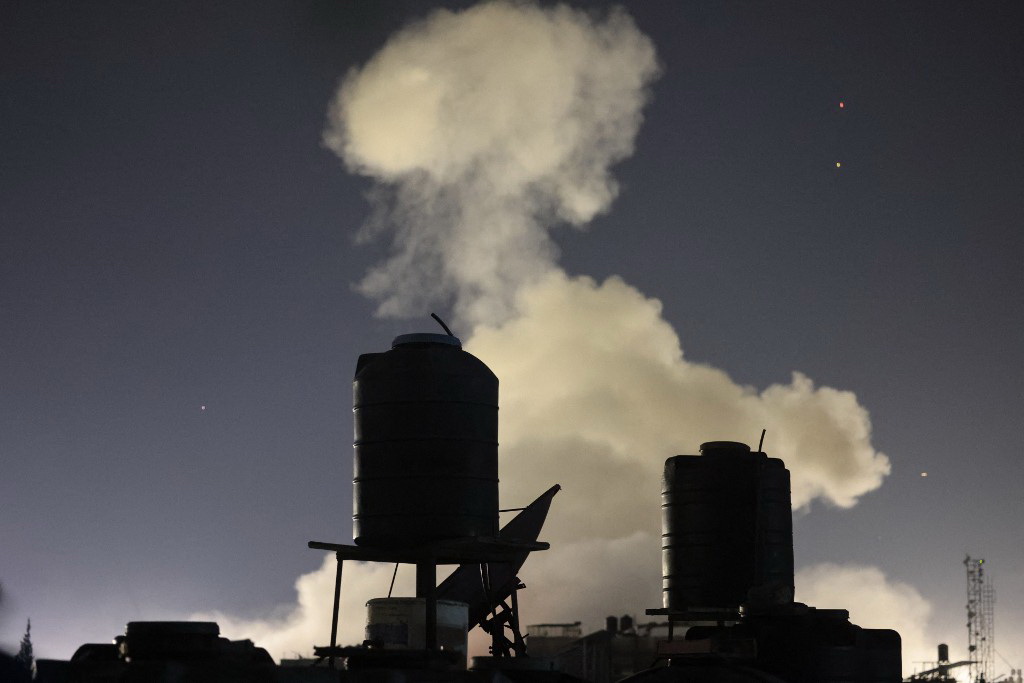
Smoke rises from the direction of Rafah at the time Israel attacked this place in the early morning of February 12.
AFP, Reuters and local residents heard sounds of heavy air strikes in Rafah. Columns of smoke were seen rising from the city in the southern Gaza Strip.
Rafah is now home to more than half of Gaza's population after people from other places fled and took refuge in the city.
A source from the Hamas government in the area said the series of airstrikes hit 14 houses and three mosques in different parts of Rafah.
Israel accuses Hamas of having underground tunnels under UN headquarters in Gaza
The Israeli military also announced the completion of an airstrike campaign against "multiple terrorist targets" in the Shaboura area of southern Gaza.
Israeli Prime Minister Benjamin Netanyahu has ordered the army to prepare for a ground offensive in Rafah, where some 1.4 million Palestinians live, many crammed into tents, as water, food and medicine become increasingly scarce.
Egypt tightens border security
Before Israel's airstrike on Rafah on February 12, Egypt had sent about 40 tanks and armored personnel carriers to northeastern Sinai in the past two weeks to strengthen security on its border with Gaza, according to The Times of Israel .
CNBC quoted two Egyptian officials and an unnamed Western diplomat as saying that Egypt had warned that it would suspend the peace agreement with Israel, known as the Camp David Accords, if it sent ground troops into Rafah.
Israel prepares to attack Hamas' last stronghold, rejects 'illusory' ceasefire proposal
The Camp David Accords signed by the leaders of Egypt and Israel in September 1978 laid the foundation for building lasting peace between the two countries after five wars between the two sides in the previous three decades.
Qatar, Saudi Arabia and others have also warned that Israel will face dire consequences if it sends ground troops into Rafah.
Source link































![[Photo] National Assembly Chairman attends the seminar "Building and operating an international financial center and recommendations for Vietnam"](https://vphoto.vietnam.vn/thumb/1200x675/vietnam/resource/IMAGE/2025/7/28/76393436936e457db31ec84433289f72)




































































Comment (0)